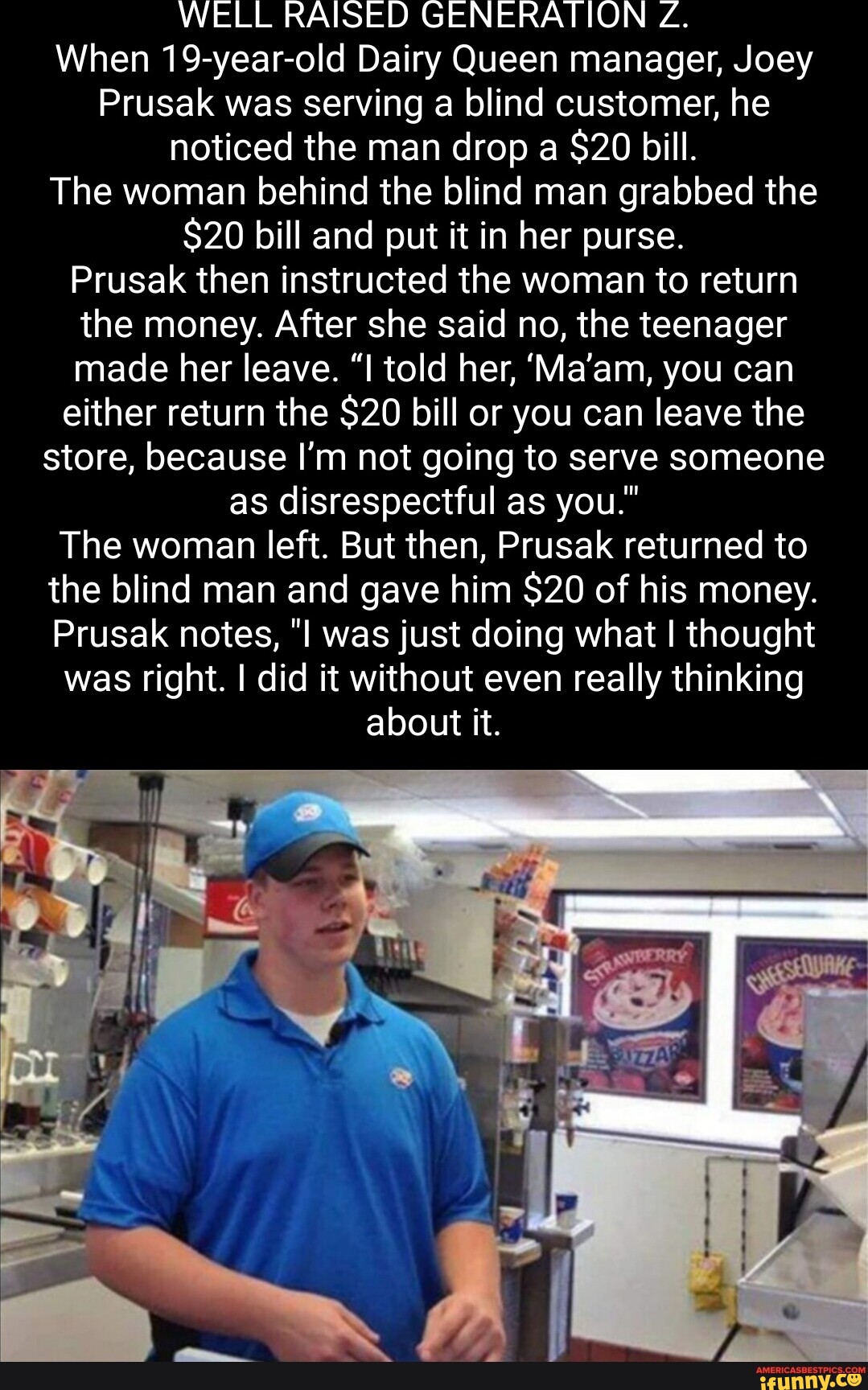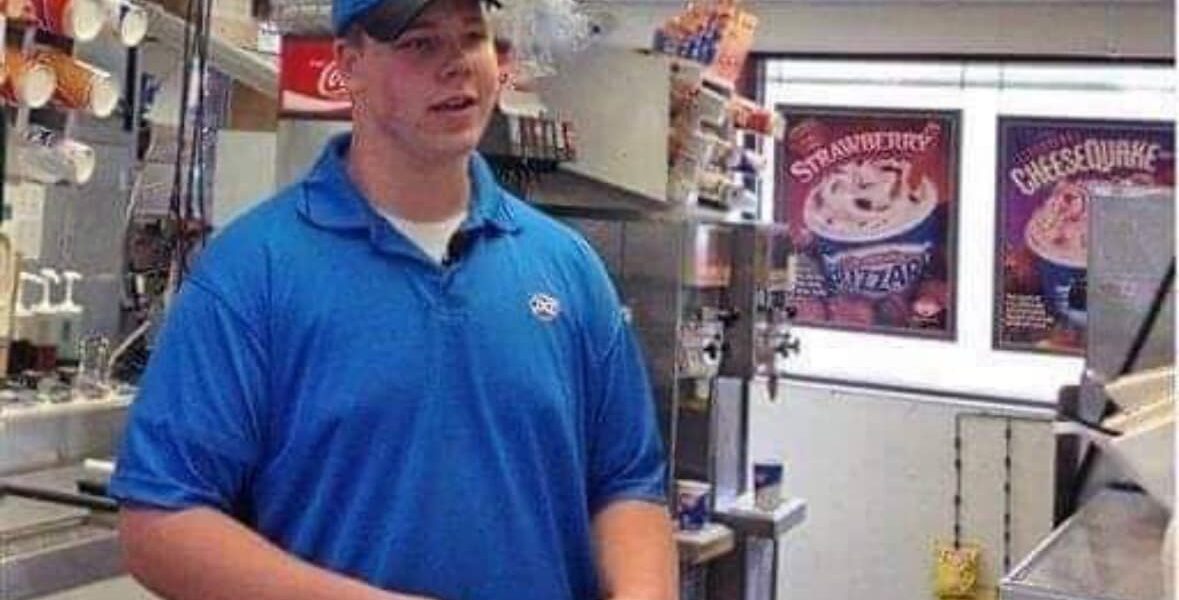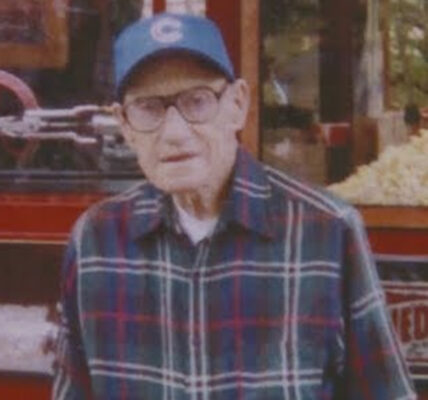
It was a busy afternoon at the Dairy Queen in Hopkins, Minnesota. Behind the counter was 19-year-old Joey Prusak, a shift manager known for his easy smile and steady work ethic. Customers came and went, each one another small part of the rhythm of his day.
Then, in the middle of serving a regular customer—a blind man—something caught Joey’s attention.
The man fumbled slightly while paying, and a folded $20 bill slipped from his hand, landing quietly on the floor. He didn’t notice. But the woman standing directly behind him did. Without hesitation, she bent down, scooped it up… and slid it into her purse.
Joey’s stomach tightened. He had seen the whole thing.

As the line moved forward, he waited for her to hand the bill back. She didn’t. Instead, she stepped up to place her order as though nothing had happened.
That’s when Joey made a choice.
Leaning forward, he spoke firmly but calmly. “Ma’am, you can either return the $20 bill you just took, or you can leave the store. I’m not going to serve someone as disrespectful as you.”
The woman’s eyes narrowed. “It’s mine,” she said flatly. Then, with a shrug, she turned and walked out—money still in her possession.
Most people would have let the matter end there. But Joey wasn’t “most people.”
After finishing the blind man’s order, Joey quietly reached into his own wallet and pulled out a crisp $20 bill. He handed it to the man. “You dropped this earlier,” he said simply.

The man’s face softened into gratitude. He had no idea what had just happened—only that someone had made sure he wasn’t shortchanged.
For Joey, it wasn’t about recognition or praise. “I was just doing what I thought was right,” he said later. “I did it without even really thinking about it.”
But word travels fast when decency stands out in a world too often numbed by indifference. Another customer witnessed the entire exchange and shared the story online. Within days, Joey’s quiet act of integrity became national news. Strangers sent him letters, called the store to commend him, and even offered him money as a reward—most of which he donated to charity.
What Joey did wasn’t about $20. It was about the invisible currency of character—the kind that can’t be stolen, spent, or replaced.
It’s a reminder that doing the right thing often means standing up, speaking out, and sometimes, paying the cost yourself.

And in Joey’s case, that cost was $20—but the value of the lesson was priceless.




